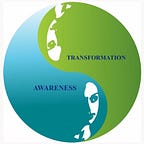Healing Hearts
The Role Of Islamic Trauma Counseling In Restoring Well-Being
In response to this need, Islamic trauma counseling has emerged as a specialized field aimed at providing culturally sensitive support and healing to those impacted by trauma.
Islamic trauma counseling integrates principles of Islamic spirituality, psychology, and counseling techniques to address the unique needs of Muslim clients. Grounded in Islamic teachings and values, this approach emphasizes the holistic nature of healing, incorporating spiritual, psychological, and social dimensions into the therapeutic process.
One of the key principles of Islamic trauma counseling is the belief in the importance of seeking both worldly and spiritual remedies for healing. Quranic verses and Prophetic traditions offer solace, guidance, and hope to individuals facing adversity, serving as a source of strength and resilience in times of distress. Islamic counselors draw upon these spiritual resources to provide comfort, reassurance, and encouragement to their clients as they navigate their healing journey.
Central to Islamic trauma counseling is the concept of tawakkul, or trust in Allah’s divine plan. Clients are encouraged to place their trust in Allah’s wisdom and mercy, knowing that He is the ultimate healer and source of all comfort. This faith-based perspective instills hope and optimism, empowering individuals to overcome their challenges with courage and perseverance.
In addition to spiritual guidance, Islamic trauma counseling incorporates evidence-based therapeutic techniques to address psychological symptoms and promote healing. Counselors employ a range of modalities, including cognitive-behavioral therapy (CBT), mindfulness-based interventions, and trauma-focused approaches, tailored to meet the unique needs and cultural background of Muslim clients.
Cultural competency is a cornerstone of Islamic trauma counseling, with counselors demonstrating sensitivity to the cultural, religious, and social context of their clients. They create a safe and supportive environment where clients feel understood, respected, and validated in their experiences. This culturally responsive approach fosters trust and rapport, facilitating a deeper therapeutic connection and promoting healing.
Islamic trauma counseling also emphasizes community support and involvement in the healing process. Counselors collaborate with local mosques, Islamic centers, and community organizations to provide resources, workshops, and support groups tailored to the needs of trauma survivors. These initiatives help foster a sense of belonging and solidarity within the Muslim community, promoting healing and resilience on a collective level.
In conclusion, Islamic trauma counseling plays a vital role in addressing the mental health needs of the Muslim community and promoting healing and well-being among trauma survivors. By integrating Islamic spirituality, psychology, and culturally sensitive counseling techniques, Islamic counselors provide a holistic approach to healing that honors individuals’ faith, resilience, and capacity for growth. Through compassionate support, guidance, and empowerment, Islamic trauma counseling helps restore hope, dignity, and healing to wounded hearts.
FAQs
What is Islamic trauma counseling?
Islamic trauma counseling is a specialized form of counseling that integrates Islamic principles, spirituality, and culturally sensitive techniques to address the psychological and emotional needs of individuals impacted by trauma.
How does Islamic trauma counseling differ from traditional counseling?
Islamic trauma counseling incorporates Islamic teachings, values, and spirituality into the therapeutic process, providing a holistic approach to healing that addresses the spiritual, psychological, and social dimensions of trauma recovery.
Who can benefit from Islamic trauma counseling?
Anyone who has experienced trauma, whether related to conflict, violence, discrimination, or other life events, can benefit from Islamic trauma counseling. It is especially beneficial for individuals who draw strength from their Islamic faith and seek culturally sensitive support.
What therapeutic techniques are used in Islamic trauma counseling?
Islamic trauma counseling utilizes evidence-based therapeutic modalities, such as cognitive-behavioral therapy (CBT), mindfulness-based interventions, and trauma-focused approaches, adapted to incorporate Islamic teachings and principles.
How can I find an Islamic trauma counselor?
You can find an Islamic trauma counselor through local mosques, Islamic centers, or mental health organizations that offer counseling services tailored to the Muslim community. Online directories and referrals from trusted community members may also help you locate a qualified counselor.
BOOK your sessions today!
https://uzmaspiritualcounseling.com/services/islamic-integrated-counseling/
